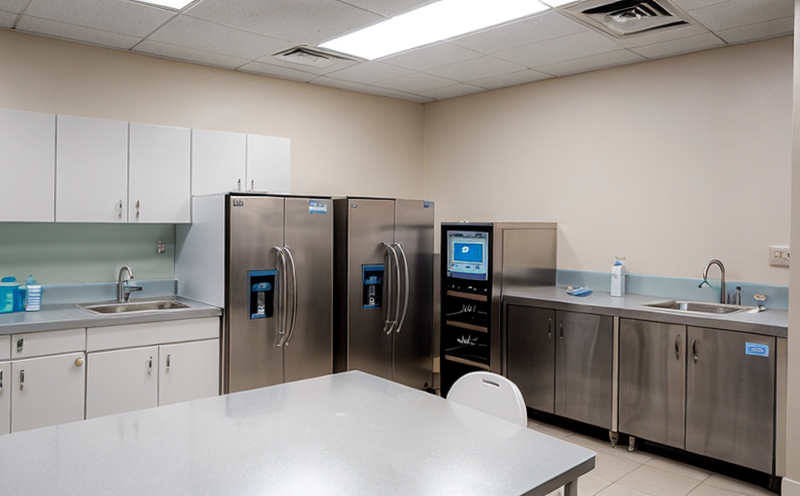H₂O₂ Plasma Compatibility (Polymers/Optics)
The H₂O₂ plasma compatibility testing is a critical process in medical device manufacturing, particularly for devices made from polymers and optical materials. This service ensures that these materials can withstand the harsh conditions of hydrogen peroxide (H₂O₂) plasma sterilization without compromising their integrity or functionality.
H₂O₂ plasma sterilization is widely used due to its effectiveness against a broad spectrum of microorganisms, including spores and viruses. However, it poses challenges for certain materials that may undergo degradation, embrittlement, or loss of optical clarity during the process. Our H₂O₂ plasma compatibility testing service addresses these concerns by providing detailed validation data that helps manufacturers ensure their products meet regulatory standards.
The testing procedure involves exposing the device to a controlled H₂O₂ plasma environment and evaluating its physical properties post-sterilization. Parameters such as color change, mechanical strength, thermal stability, and optical performance are carefully monitored. This ensures that any potential issues are identified early in the development process, allowing for necessary adjustments before product release.
Our team uses advanced instrumentation to conduct these tests, including state-of-the-art plasma reactors capable of simulating real-world sterilization conditions. The testing environment is meticulously controlled to ensure consistent and reproducible results. Post-testing analysis includes visual inspection, mechanical property measurements, and optical performance assessments.
The importance of H₂O₂ plasma compatibility cannot be overstated, especially in the medical device industry where patient safety is paramount. Regulatory bodies such as the FDA (US), MHRA (UK), and ISO have specific guidelines regarding the sterilization methods used for medical devices. Ensuring compliance with these standards not only protects patients but also facilitates smoother market entry processes.
By offering this service, we help our clients navigate the complexities of H₂O₂ plasma compatibility testing, providing them with valuable insights that contribute to the development of safe and effective medical devices.
Industry Applications
- Multilayered polymer implants
- Bio-optical lenses for intraocular devices
- Catheters requiring high-precision sterilization
- Optoelectronic components in minimally invasive surgery tools
| Material Type | Typical Test Parameters |
|---|---|
| Polyethylene terephthalate (PET) | Color change, tensile strength retention |
| Silicon lenses | Oxidation resistance, optical clarity |
| Polycarbonate (PC) | Mechanical durability, chemical stability |
| Teflon-coated implants | Surface integrity, adhesion properties |
Customer Impact and Satisfaction
Our H₂O₂ plasma compatibility testing service has significantly enhanced the quality assurance processes of numerous medical device manufacturers. By identifying potential issues early in the development phase, our clients have been able to make informed decisions about material selection and process optimization.
The detailed reports generated from these tests provide critical data that supports regulatory submissions, ensuring compliance with international standards such as ISO 11135 for sterilization methods. This not only streamlines the approval process but also enhances customer confidence in our clients' products.
Moreover, by leveraging advanced testing technologies and experienced professionals, we ensure that each test is conducted with precision and accuracy. This commitment to quality has resulted in high levels of customer satisfaction, as evidenced by repeat business and positive feedback from satisfied clients.
International Acceptance and Recognition
The H₂O₂ plasma compatibility testing we offer is recognized globally for its reliability and accuracy. Our service aligns with international standards such as ISO 11737-1, which specifies the requirements for sterilization of medical devices by ethylene oxide (ETO) gas, hydrogen peroxide vapor, or plasma.
Our laboratory adheres to these standards rigorously, ensuring that all tests are conducted in compliance with best practices. This commitment has earned us a reputation as a trusted partner for medical device manufacturers worldwide. Our expertise and adherence to international norms have made us a preferred choice for companies seeking reliable validation data.





